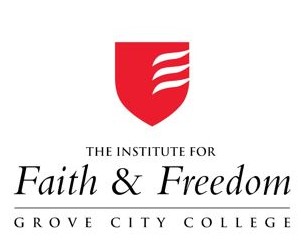Why Do Americans Cherish Sad Songs for Christmas?

Despite its oft-proclaimed status as “the Most Wonderful Time of the Year,” the Christmas season in the United States features an array of dearly beloved songs that convey an unmistakable, irresistible edge of sadness.
“White Christmas”, the most popular song ever written in terms of record sales, yearns for a lost, old-fashioned holiday “just like the ones I used to know.” Even the seldom-performed introductory verse (usually discarded on recorded versions) expresses a desire to be somewhere else, rather than basking under the palms and orange trees of “Beverly Hills, L.A.”
But it’s December twenty-fourth
And I’m longing to be up North
Meanwhile, “The Christmas Song”, with its imagery of “Chestnuts roasting on an open fire” and “Yuletide carols being sung by a choir”, conveys a similar mood of nostalgic melancholy. Also invoking the healing power of the season, “Have Yourself a Merry Little Christmas” (written for the Judy Garland melodrama Meet me in Saint Louis in 1946) sees the festival as an antidote to woe and pain:
From now on, our troubles will be miles away
Here we are as in olden days
Happy golden days of yore
Even more explicit in expressing an unfulfilled (and perhaps unfulfillable) yearning for family and security, “I’ll be Home for Christmas” (1943):
Christmas Eve will find me
Where the love light gleams
I’ll be home for Christmas
If only in my dreams
The single line “if only in my dreams” has been described by some admirers as “the saddest lyric ever written.”
So why would a festival famous for its abundant, joyous feasting and drinking (“’tis the season to be jolly,” after all) cherish so many musical reminders of longing and ache?
Two explanations come to mind:
First, all of the songs noted above became popular during or just after World War II, when literally tens of millions of Americans had been separated, or even isolated, by the raging conflict. In the context of worldwide conflagration, even the most ordinary facets of a normal Christmas felt particularly precious and magical. The disruptions of the current pandemic may not be comparable to the suffering that engulfed the world from 1939 to 1945, but surely survivors of the Covid era can understand the preciousness of an ordinary, traditional family holiday.
The other element that helps to explain the enduring popularity of the season’s sad songs involves the pull of lost innocence and vanished childhood. Irving Berlin’s craving for a white Christmas “just like the ones I used to know” may seem incongruous coming from an impoverished Jewish kid who emigrated from Russia when he was five and experienced a wretchedly impoverished childhood on the Lower East Side. But by 1941, when he wrote the song, he knew his adopted, beloved homeland well enough to share the joys of a season “where the treetops glisten, and children listen, to hear sleigh bells in the snow.”
“The Christmas Song” also focuses on a child’s experience of the holiday:
Tiny tots, with their eyes all aglow
Will find it hard to sleep tonight
They know that Santa’s on his way
He’s loaded lots of toys and goodies on his sleigh
And every mother’s child is gonna spy
To see if reindeer really know how to fly
Even those who may not have personally experienced the wonderment of a small child’s Christmas (like Mel Torme, another Jewish songsmith who co-wrote the lovely lines just cited) can still relate to glowing memories of early, protected, home years when magic seemed real, or at least plausible
Hence, the timeless wish of “The Christmas Song” resonates just as richly in 2021 as at the time of its composition in 1945:
And so I’m offering this simple phrase
To kids from one to ninety-two
Although it’s been said many times, many ways
Merry Christmas to you…
…and may all Americans within that substantial age range find their own basis for hope, home, and wonder in this enchanted season and the year ahead.





















